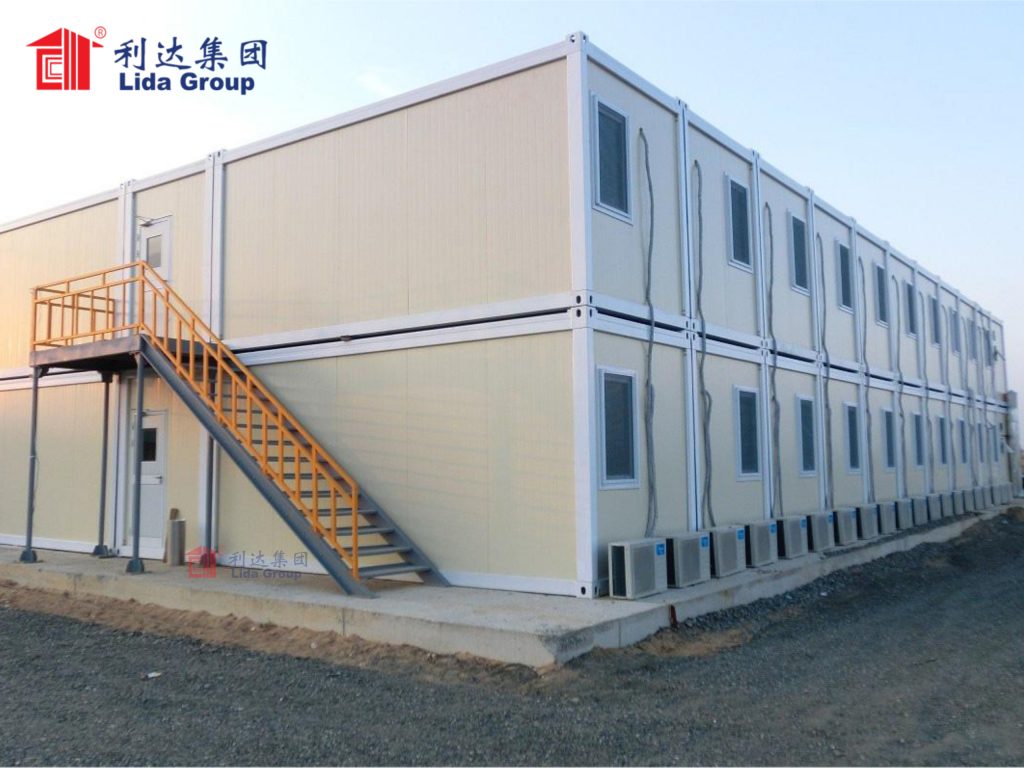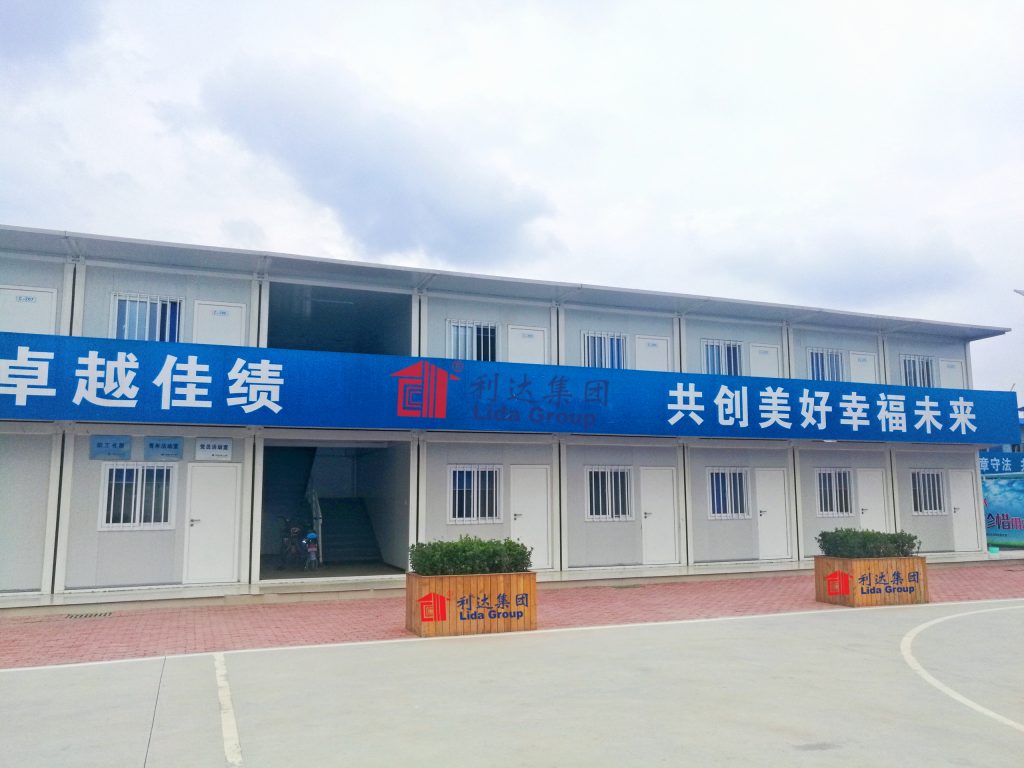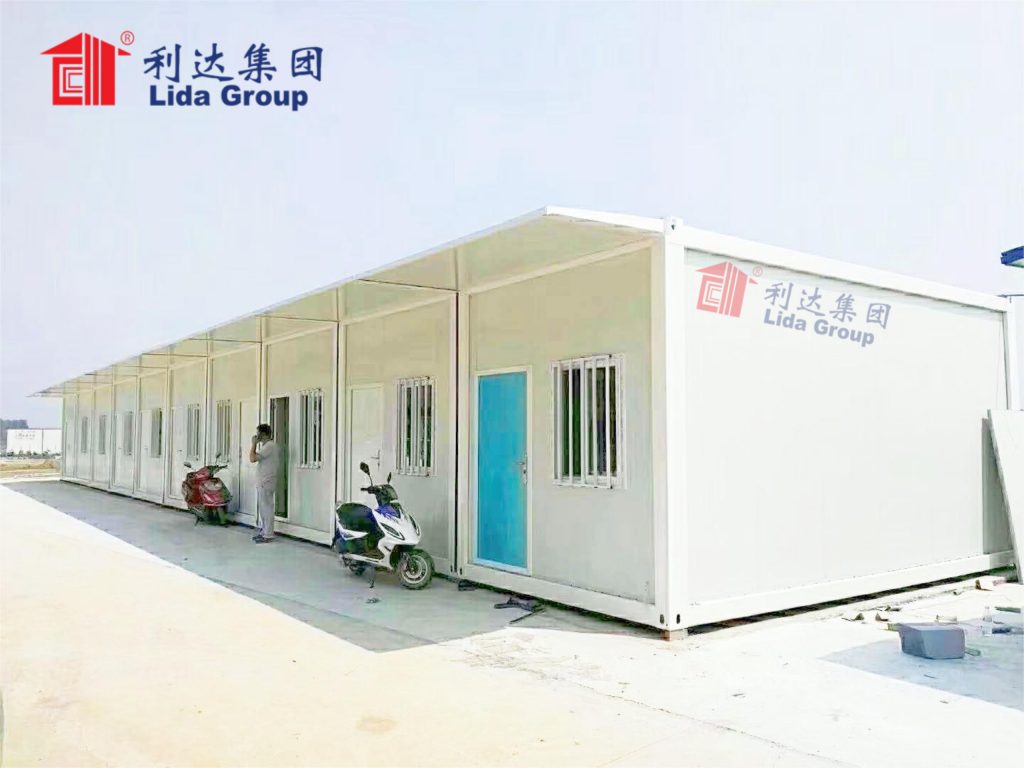A large coal mining firm headquartered in Inner Mongolia has awarded Lida Group a contract to retrofit its ageing workforce accommodation. Faced with mounting issues from overcrowded multi-bunk dormitories, the company sought a modernized solution compatible with its rotational mine staff’s accommodation needs at remote mountaintop sites.
Lida proposed converting refurbished shipping containers into prefabricated modular housing units. Dozens of standardized green-certified living complexes resembling small apartment blocks will now replace dated single-storey dormitories over several phases. Equipped with individual en-suite rooms and auxiliary facilities, the portable prefab structures aim to provide a higher quality of life for miners on rotational shifts in the company’s isolated high-altitude coalfields.
“Cramped dormitories were affecting staff retention as young miners sought better living conditions elsewhere,” remarked Mine Chairman Chen Jianfeng. “Lida’s container village concept offers practical, dignified housing while retaining flexibility for our sites’ fluctuating workforce numbers and operational adjustments over mine lifecycles.”

According to Lida Project Manager Zhang Jing, each container living complex comprises stackable modular rooms plus shared recreational areas, kitchens, laundries and administrative spaces – all fully plumbed, wired and furnished prior to delivery. Refurbished 40-foot steel shipping containers form the structural building blocks, allowing prefabrication in Lida’s factories before transport and rapid on-site assembly.
To minimize environmental footprint at the pristine mountain sites, all container interiors feature sustainably-sourced, formaldehyde-free panels and low-energy lighting/appliances. Triple-glazed windows, pitched roofs, spray-foam insulation and underfloor HVAC ducting provide comfort all year round. Solar photovoltaics and rainwater capture systems promote off-grid self-sufficiency.
The first complex slated for a 3,000-worker mine near Xilinhot includes 48 en-suite rooms plus amenities within a U-shaped layout spanning 1,200 sqm. Subsequent phases will expand housing stock modularly using Lida’s standardized designs optimized for the company’s remote site conditions. With stacked two-storey construction, container footprints are minimized while accommodating over 200 rotational employees per complex.

“Instead of barracks, workers now have private rooms with dedicated bathing and laundry facilities – the same home comforts many expect off-site,” notes Zhang. “Plus our portable modular construction means these housing units can seamlessly relocate between mines as operational needs change long-term without expensive new build projects.”
Transporting complete prefab container complexes over mountain passes presented logistical challenges, but pioneering containerized construction presents advantages for mining site infrastructure too. Entire buildings or auxiliary facilities like workshops, medical clinics and vehicle garages can now easily mobilize to where labor camps shift or expand mine sites organically over decades.
The first phase workforce housing complex was completed within six months of contract signing, well ahead of schedule. Due to arrive fully equipped and furnished at the Xilinhot mine this autumn, inaugural resident feedback will inform continuous design refinement before full rollout. Installation of auxiliary solar microgrids and rainwater collection is also underway to pioneer net-zero living for rotational mining communities.

Commenting from Lida Group’s Hannan provincial headquarters, Chairman Li Chen said “With China’s 14th Five Year Plan targeting carbon emissions peaking, this container village model demonstrates how modular prefab construction can durably house remote site workforces with zero waste to landfill and minimal transport impacts compared to conventional building approaches. We hope trials here spur wider green building applications nationwide.”
The remote mining industry’s inherent challenges of developing fit-for-purpose yet portable infrastructure at scattered mountainous sites have long presented obstacles to workforce wellbeing. However, containerized prefabrication now overcomes such barriers through scalable modular standardized design. If rotational staff feedback affirms container villages as a dignified long-term housing model, sites nationwide may embrace this sustainable solution to elevate living standards across resource sector communities.
In summary, Lida Group’s innovative retrofit of refurbished shipping containers into solar-powered modular apartment complexes aims to replace outdated multi-bunk dormitories and provide dignified single accommodation for rotational mining workforces. Standardized prefab construction enables net-zero communities optimized for remote high-altitude sites to flexibly relocate as operations evolve long-term. The portfolio living complexes showcase containerization’s potential to sustainably house remote resource sector workers nationwide through portable prefabrication compatible with China’s zero-carbon development goals.

Related news
-
Social enterprise collaborates with Lida Group to deploy demo portable prefab shelters constructed from recycled composite sandwich panels as transitional housing for vulnerable families awaiting permanent homes.
2024-06-18 17:58:03
-
Manufacturers produce insulated composite panel components for Lida Group to mass-produce versatile housing made quickly relocatable for communities facing recurrent natural hazards or displacement due to changing economic conditions.
2024-06-18 10:32:17
-
University research evaluates case studies of Lida Group's adaptable modular building system to empower remote indigenous labor camp residents transition to sustainable mobile housing promoting better access to education and healthcare.
2024-06-13 10:59:55
contact us
- Tel: +86-532-88966982
- Whatsapp: +86-13793209022
- E-mail: sales@lidajituan.com


